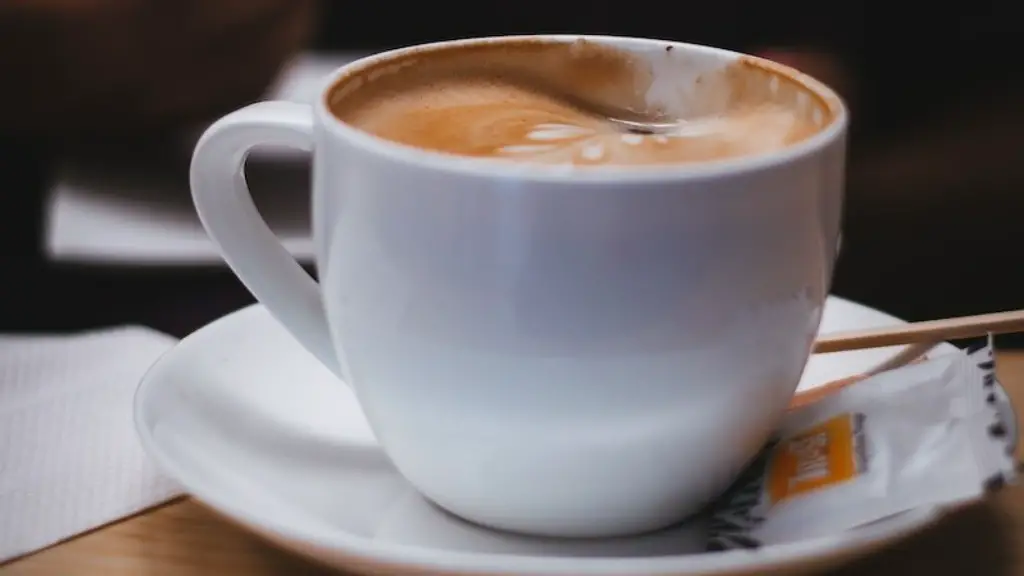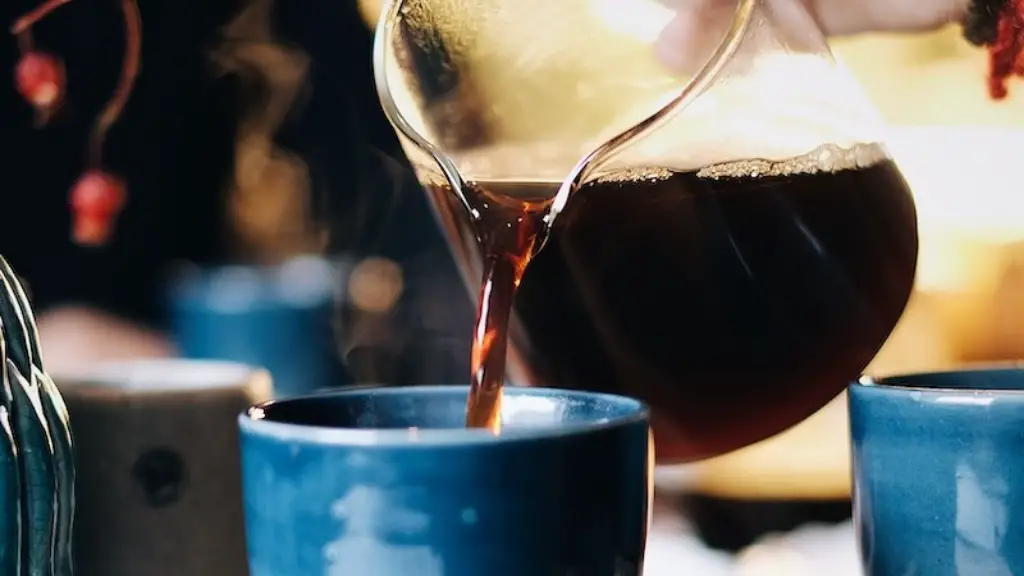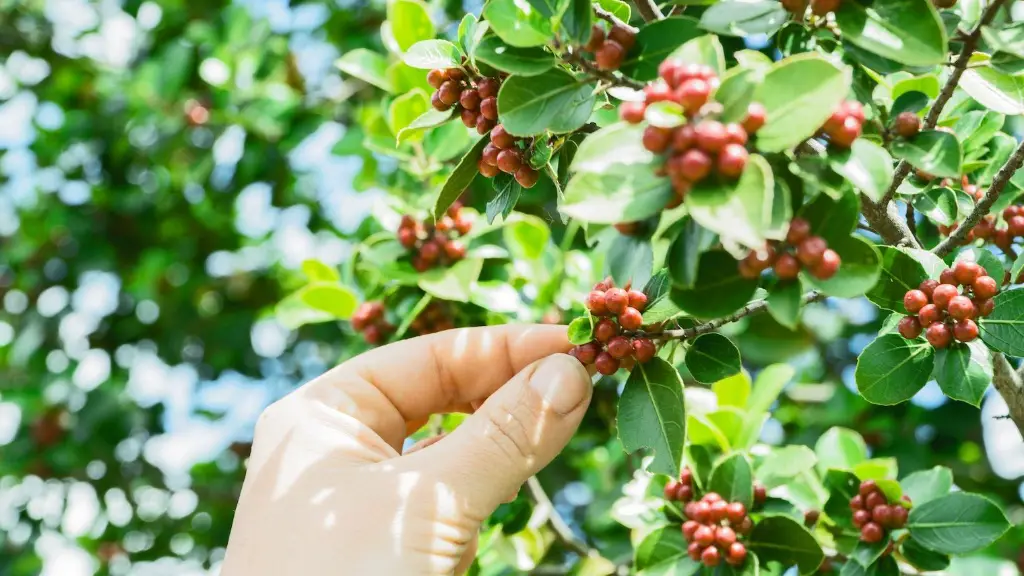Biochemistry
Coffee contains an array of compounds and substances that have various physiological effects, especially on the cardiovascular system. The most commonly studied substances are caffeine and chlorogenic acids. Caffeine, a stimulant, can affect heart rate. A 2017 study found that drinking a moderate amount of coffee can increase heart rate and relax the walls of the arteries, allowing more blood flow. Chlorogenic acids, found in coffee, are known to have anti-inflammatory effects and may reduce the risk of cardiovascular disease. However, it is still unknown what role these compounds have in heart pain after drinking coffee.
Stress
When you drink coffee, it can cause stress which can lead to an increase in heart rate, as well as pain. Many people have found that drinking coffee or other caffeinated beverages can make them feel “wired” or “jittery,” which may be due to an increased blood pressure or a change in the levels of certain hormones. Additionally, coffee can raise cortisol levels, the primary hormone involved in the body’s stress response, which can increase both heart rate and heart pain.
Dehydration
Coffee is a diuretic, meaning it can cause the body to lose more fluids than it takes in. This means that if you drink coffee without also replenishing your body with fluids, you can become dehydrated. Dehydration can increase heart rate and cause pain in the chest. The National Institute of Health recommends drinking around two liters of water per day to remain hydrated, regardless of how much coffee you drink.
Heartburn
Heartburn is one of the most common causes of heart pain after drinking coffee. This is because coffee has a number of compounds that can irritate the stomach and cause acid reflux. Additionally, coffee is known to relax the lower esophageal sphincter (LES), the muscular valve that separates the stomach from the esophagus. If the LES is too relaxed, acid from the stomach can flow back into the esophagus, causing a burning sensation in the chest.
High Blood Pressure
For some people, coffee consumption can raise blood pressure, causing an increase in heart rate and pain. A 2017 study found that drinking coffee can cause a temporary increase in blood pressure, and people with high blood pressure are more likely to experience heart pain after drinking coffee. High blood pressure can be managed through lifestyle changes such as eating a healthy diet and exercising regularly.
Genetics
Genetics can play a role in how coffee affects heart health. Studies have suggested that the pain experienced after drinking coffee can be linked to the gene ADORA2A, which has been linked to higher levels of anxiety and heart rate. It is still unknown if this gene increases the risk of heart pain after consuming coffee, but it is an important factor to consider.
Expected Impact
When it comes to understanding why your heart hurts after drinking coffee, it is important to remember that everyone’s body responds differently. Some people may experience no pain at all, while others may have a large spike in heart rate and chest pain. It is important to pay attention to the way coffee affects you, and to consult a doctor if your symptoms are causing concern.
Treatment
If you experience heart pain after drinking coffee, some lifestyle changes may help to reduce the symptoms. Avoiding caffeine or drinking it in moderation can help to reduce the symptoms. Additionally, staying hydrated, exercising regularly, and eating a healthy diet can improve overall heart health and reduce pain. If the symptoms persist, it is important to consult a doctor to discuss other treatment options.
Expert Perspectives
The American Heart Association advises limiting caffeine and avoiding it altogether if one experiences chest pain or discomfort. Cardiologist Dr. James Stein recommends limiting caffeine intake to no more than 2 servings per day and avoiding it altogether if possible. Meanwhile, Dr. Kathryn Weaver recommends limiting coffee intake to 1 or 2 cups per day, depending on the individual’s sensitivity. Finally, Dr. Joseph Herron recommends limiting the amount of caffeine consumed in a day and drinking plenty of water to stay hydrated.
Genetic Association
Research suggests that genetics may predispose some people to chest pain and heart palpitations after consuming coffee. A 2021 study conducted by the National Centre for Biotechnology Information found that people with an allele variation of the ADORA2A gene, are more likely to experience anxiety, heart palpitations, and chest pain after consuming caffeine.
Risk Factors
Studies suggest that various factors may increase the risk of experiencing chest pain after drinking coffee. These factors include genetics, stress, dehydration, and high blood pressure. People with existing heart conditions, such as high blood pressure, should avoid drinking coffee or speak with their doctor before consuming caffeine.
Sleep and Stress
Research suggests that stress and lack of sleep may increase the risk of experiencing chest pain after drinking coffee. Stress can increase heart rate and cortisol levels, while lack of adequate sleep can promote inflammation in the body. A 2020 study found that people who get less than 6 hours of sleep per night are more likely to experience chest pain after drinking coffee.
Conclusion
In conclusion, there is still no definite answer as to why your heart hurts after drinking coffee. However, it is important to be aware of the factors – such as genetics, dehydration, and stress – that may contribute to this phenomenon. Additionally, those with existing heart conditions should avoid or limit their caffeine intake, and engage in activities that reduce stress and promote healthy sleep. Ultimately, it is important to be aware of the way your body responds to coffee, and to consult a doctor if your symptoms are causing concern.



